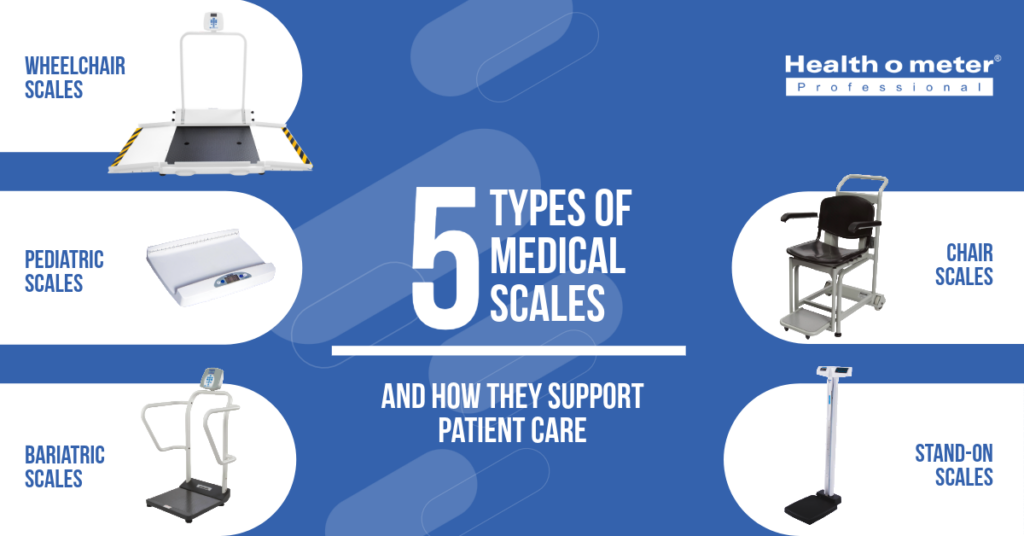When it comes to delivering quality healthcare, accurate weight measurement is essential. Whether it's calculating medication dosages, monitoring fluid retention, or tracking progress in treatment plans, having the right type of medical scale can make all the difference. Not all patients or care settings are the same, which is why healthcare professionals rely on different types of scales to ensure the best outcomes. Below, we explore five common types of medical scales and how they support various treatments.
- Wheelchair Scales
Best for: Patients with mobility limitations
Wheelchair scales are designed to weigh patients without requiring them to leave their wheelchair. These scales are critical in settings such as dialysis clinics, long-term care facilities, and post-surgical recovery units.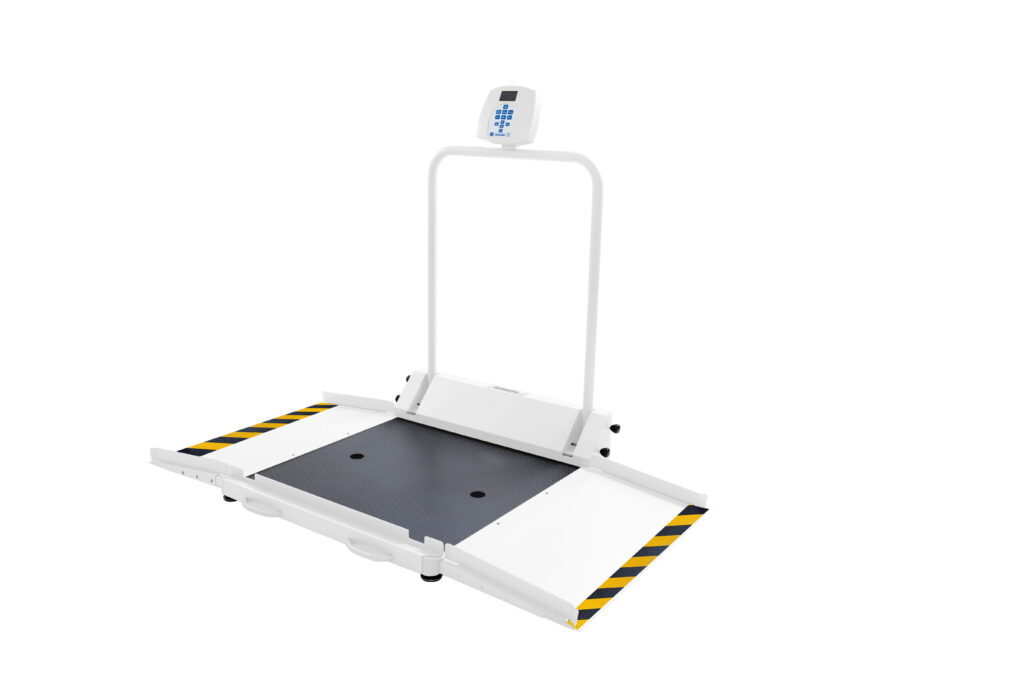
Common Treatments and Uses:
- Dialysis treatment monitoring
- Post-operative recovery
- Weight tracking for patients with physical disabilities
Key Features:
- Ramps or low-profile platforms for easy wheelchair access
- Folds for storage
- High weight capacity
- Tare function to subtract the weight of wheelchairs or items like an oxygen tank
- Meets the US Access Board Standards
- Pediatric Scales
Best for: Infants and toddlers
For healthcare providers working with the youngest patients, pediatric scales are essential. These scales offer the precision needed to monitor early growth and ensure safe medication dosages.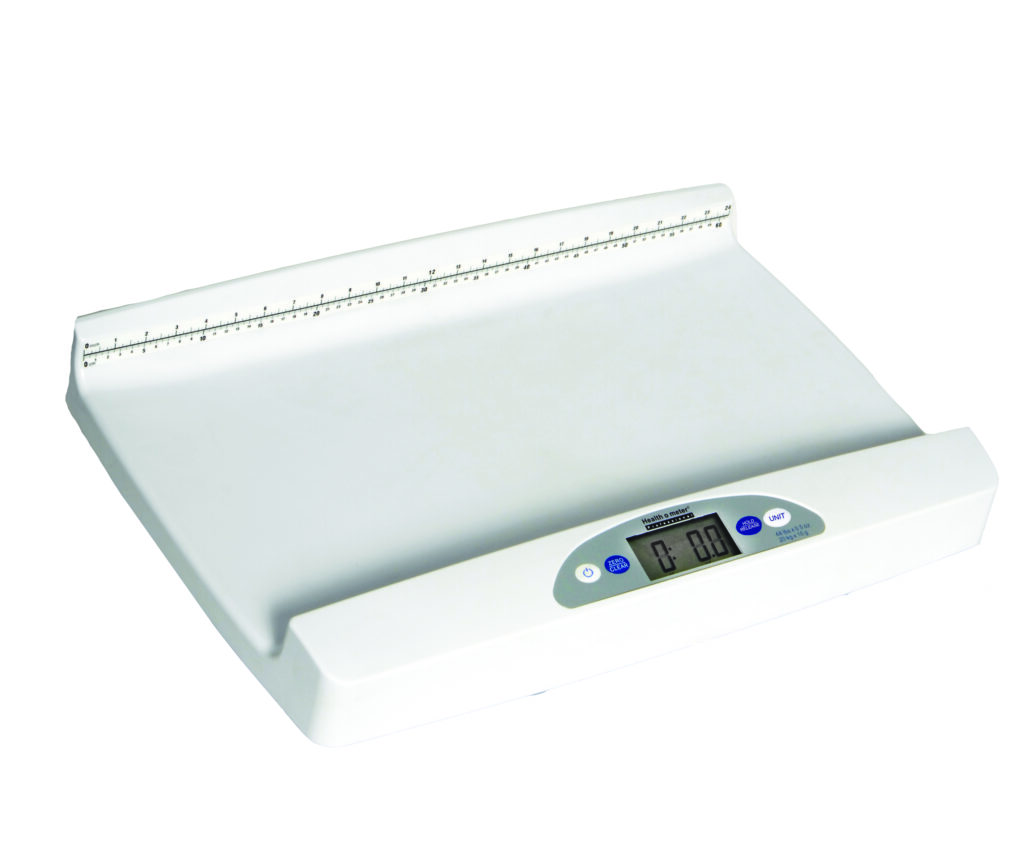
Common Treatments and Uses:
- Growth and development monitoring
- NICU care
- Pediatric wellness checkups
Key Features:
- Contoured, secure trays or seats
- High sensitivity to detect small weight changes
- Built-in measuring tapes or measuring rod
- Motion detection – accurate weight with a moving patient
- Bariatric Scales
Best for: Patients with obesity or higher body weights
Bariatric scales are specially designed to support patients who need a higher weight capacity. These scales are often found in weight management clinics, bariatric surgery centers, and primary care practices.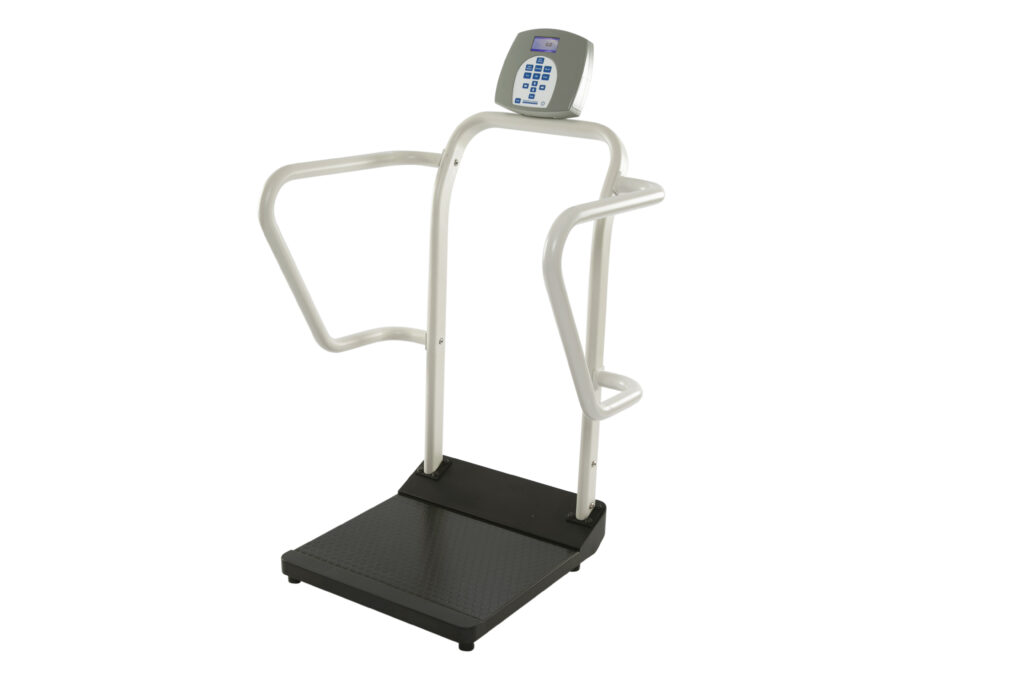
Common Treatments and Uses:
- Weight loss programs
- Pre- and post-bariatric surgery monitoring
- Chronic disease management (e.g., diabetes, cardiovascular care)
Key Features:
- Extra-wide platforms
- Handrails or seats for comfort and support
- High-capacity weighing (often over 1,000 lbs)
- Chair Scales
Best for: Patients unable to stand safely
Chair scales are used in environments where patients are too weak or unstable to stand on their own. They are frequently used in geriatric care, oncology departments, and rehabilitation centers.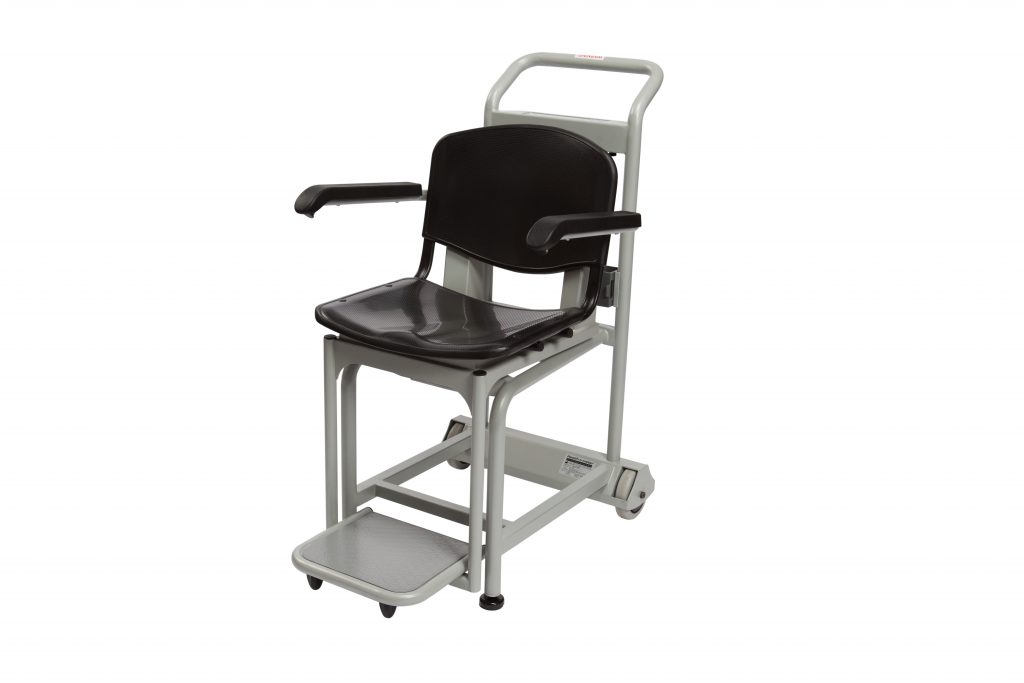
Common Treatments and Uses:
- Monitoring frail or elderly patients
- Palliative care
- Physical therapy and rehabilitation
Key Features:
- Integrated seating
- Wheels for transport to patients location
- Foldable armrests and footrests for patient comfort
- Motion detection – accurate weight with a moving patient
- Tare function to subtract the weight of an object like an oxygen tank
- Stand-On Scales with Height Rods
Best for: Outpatient clinics and general wellness checks
These standard clinical scales are a staple in most healthcare environments. They’re ideal for routine use and quick assessments.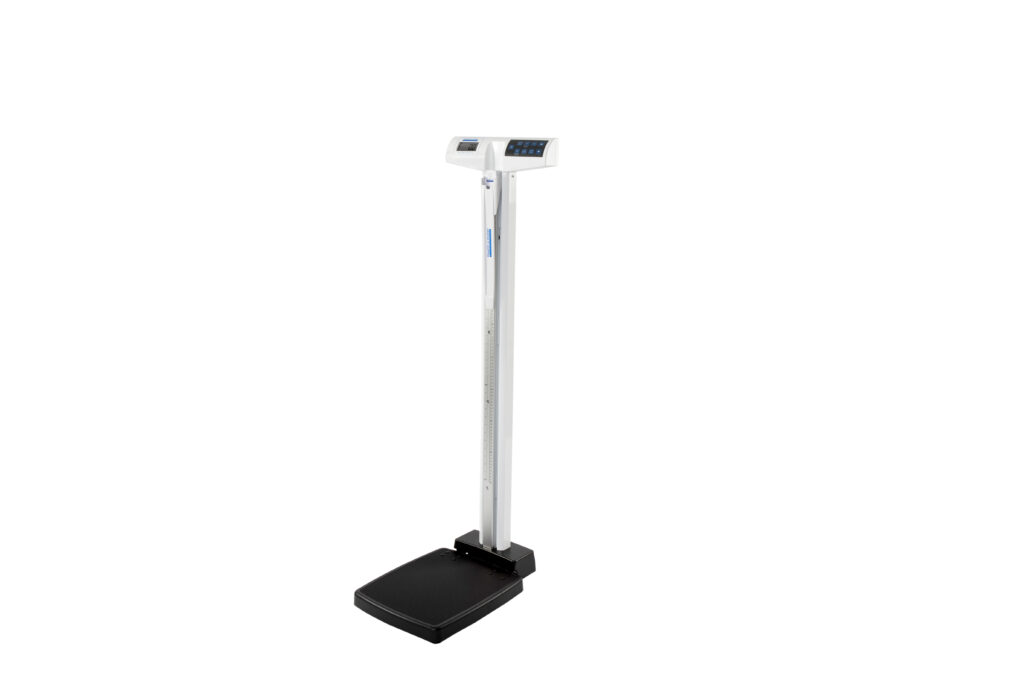
Common Treatments and Uses:
- Annual physical exams
- BMI calculation
- Weight monitoring during medication changes
Key Features:
- Integrated height rods
- BMI calculators
- EMR capable
Choosing the right scale for your patients isn’t just about convenience—it directly impacts care quality, safety, and outcomes. Whether you're monitoring an infant’s development or managing a chronic condition in a bariatric patient, there’s a scale designed to meet your needs.
Looking for guidance on selecting the best scale for your facility? Contact us today to explore the full range of Health o meter® Professional medical scales. /contact-us/
 Safe Patient Handling
Safe Patient Handling 
